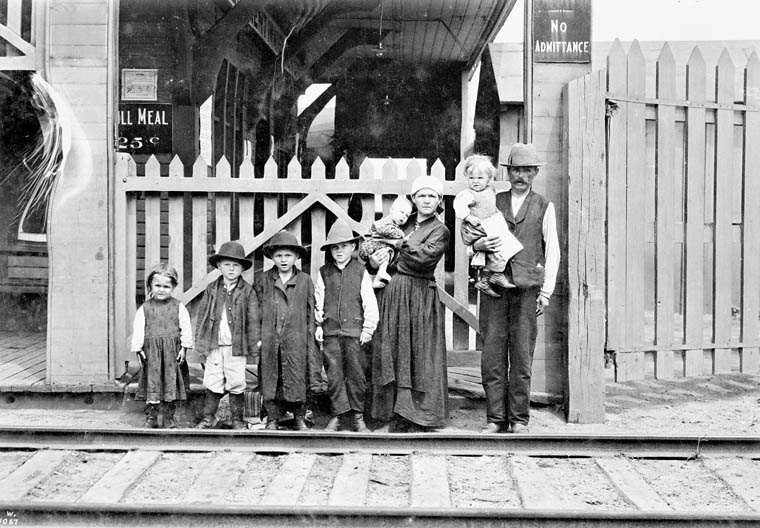PLEASE NOTE: The application period for this opportunity has closed.
This Post courtesy of Nick Ward, Communications & Content Editor, Faculty of Arts & Social Sciences (FASS), Carleton University. To view this article on the FASS website, Click Here.
The Local Engagement Refugee Research Network (LERRN), the Department of History at Carleton University, and the Canadian Immigration Historical Society (CIHS) are excited to announce a new research partnership to support student research on migration to and settlement in Canada as a means to help preserve Canada’s immigration history.
Together, LERRN, the Department of History, and CIHS will offer graduating fourth year students and graduate students enrolled in any social sciences or humanities discipline at any Canadian university the opportunity to win the annual Gunn Prize. Valued at $1,000, the Gunn Prize is a national, interdisciplinary award that recognizes excellence in a research paper which addresses the crucial topic of migration to and settlement in Canada from a historical perspective.

Galician immigrants at Immigration Sheds, Québec (Credit: Woodruff/Library and Archives Canada/C-004745)
“The history of migration and settlement in Canada invites multiple perspectives, and the more we can encourage different perspectives – from different communities, time periods, and so on – the more we can enrich our understanding of the past and the present,” explains Dr. Laura Madokoro, Professor of History at Carleton.
Carleton Professor Dr. James Milner (Department of Political Science), head of the LERRN partnership, also stresses the importance of accurately detailing and preserving Canadian immigration history.
“There is too often a tendency to approach each new chapter in Canada’s approach to refugees and immigration as an unprecedented ‘crisis’. More often, however, there are deep historical lessons to be learned from past experience and applied to contemporary situations. What has worked before? What are lessons that can be learned?” asks Milner.
The Chair of the Department of History, Dr. James Miller, and his colleagues have long been committed to developing relationships with groups beyond campus, and is delighted with this new partnership and the opportunities it will undoubtedly afford.
“The History of Immigration is central to so many questions we ask about the Canadian past, present, and future,” says Miller. “The opportunity both to draw on the expertise and experiences of some of the people who helped to make that history and to encourage students to research and write about it, as historians, is very welcome.”
He hopes the Prize will encourage students to see themselves as true historians.
I hope that participating in this process, and perhaps even researching and writing with a wider audience in mind, will help students to see greater value in their work, to see that they are creating original work of potential wider significance, not writing ‘just another paper for the professor’.
Dr. James Miller
Milner explains that the LERRN’s mandate is to bring academic research into conversation with civil society partners working to enhance protection and solutions with and for refugees. “The Gunn Prize is another opportunity to demonstrate how academic research can contribute to better analysis and better responses,” he says.
“We truly hope that students who write and submit essays to this competition will recognize that their work can contribute to a broader conversation about Canada’s approach to refugee and immigration, and also that the Prize helps empower all students to realize the role that they can play in using the tools of research and analysis to advance conversations about policy and practice.”
Madokoro agrees that the Gunn Prize will help inspire students interested in the historical evolution of Canadian immigration policy and historical analysis of Canadian immigration relating to specific places, events, or communities.
“I think we sometimes forget to talk about how much we, as instructors, learn from students – in our class discussions but also from engaging with their research questions and projects,” says Madokoro.
I hope students will gain more of a sense of themselves participating in the rich and lively conversations around questions of migration to, within, and from Canada.
Dr. Laura Madokoro
To apply, students must submit their essays by June 30, 2022, to be reviewed by a committee from Carleton University and the CIHS. For more information, please contact prixgunnprize@carleton.ca.
The Gunn Prize is named after Al Gunn, one of the founding members of the CIHS and its longstanding Secretary until his death in 2009.


